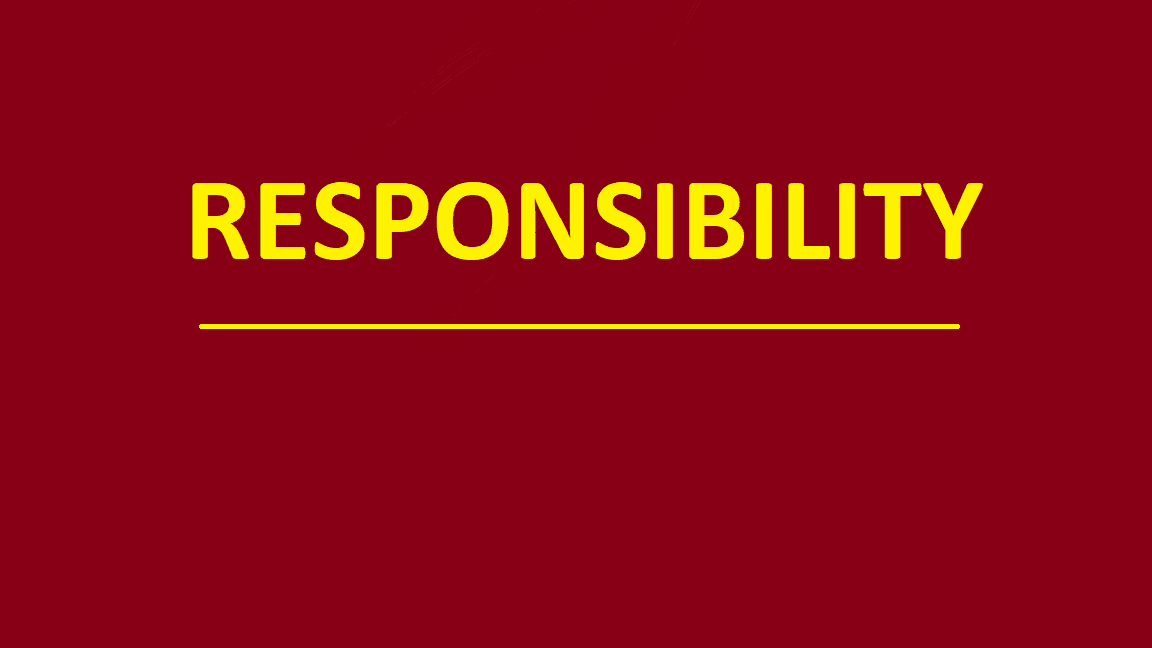
Responsibility
Making the decision to take music lessons is not something that should be taken lightly. Learning an instrument is an investment of time and money. Students and parents must be ready to dedicate the time to take the lesson and the time at home to practice the instrument. They must be ready to make the financial commitment to pay for the lessons, the instrument and other materials the student will need.
Unfortunately, too often there is a misunderstanding in the role the teacher, parent, and student plays. Poor quality teachers often think their responsibility starts and stops at the 30-minute lesson. These often do not have thorough lessons plans or performance opportunities for their students, or rarely reach out to parents to talk about progress. Some parents think their responsibility ends with paying for and dropping the student off for each lesson. Finally, some students think their responsibility ends after their 30-minute lesson and do not practicing consistently. If your student or parent is calling the music lesson “practice”, you might have a problem.
One of the best things a teacher can do when meeting new clients is to make these responsibilities clear to everyone involved. If these roles are clear from the beginning the student is guaranteed to be successful. However, if these responsibilities are not made clear the student will most likely fail resulting in wasting time and money for the client. For the teachers it will result an unhappy client and losing a student. Worst of all this can also result in students’ being scared away from music lessons all together.
Here is an outline of Teacher, Parent, and student responsibilities. I try to make these clear to all my clients. The clients that accept these responsibilities from the start are some of my most successful.
Teacher
- Explains everyone’s responsibilities
- Explains the difference between lessons and practice
- Provides consistent lesson Day and Time. Provides students with makeup lessons for excused absences.
- Provides clean and safe learning environment.
- Is present for all lessons using a substitute only when necessary.
- Explains assignments clearly
- Assigns homework for weekly practice; written out in students’ assignment book.
- Sets up performance opportunities for students
- Meets/Contacts parents about student progress or concerns
- Discusses constantly the importance of practicing and how to practice correctly
Parents/Guardian
- Brings student to lessons consistently and on time.
- Provides student with all necessary materials for learning the instrument. This includes quality appropriately sized instrument and method books. Also depending on the instrument, the student will need music stand, tuners, extra strings, etc.
- Checks in with the teacher to monitor student’s progress and direction.
- Notifies teacher of absences and coordinates make ups for missed lessons.
- Monitor students’ home practice regiment. Reminds them to practice when necessary.
- Sits in on lessons to help the student with practicing at home. (depending on age of student)
- Signs student up for group activities and performance opportunities.
- Makes sure the student is practicing assignments outlined by the teacher
Student
- The student is present and engaged for all lessons.
- Practices every day.
- Finishes all playing and written assignments
- Takes advantage of performance opportunities.
- Keeps music, exercises, and theory assignments organized.
- Takes advantage of group activities offered by teacher.
